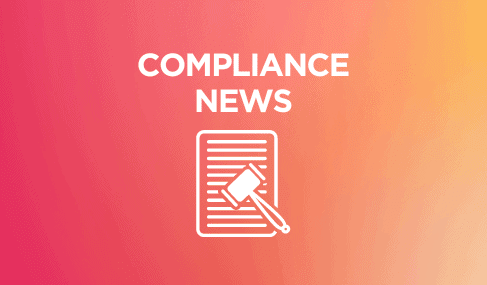
We aim to highlight the importance of due diligence in lead campaigns and to keep our customers and industry associates up-to-date with the compliance news reported for our industry. This article is reprinted here for our readers, courtesy of our legal partners Mac Murray & Shuster LLP.
Get a recap of the latest contact center compliance news delivered monthly to your inbox. Subscribe here >
 FTC Sharpens Focus on Lead Gen & Prerecorded Messages
FTC Sharpens Focus on Lead Gen & Prerecorded Messages
by Michele Shuster, Partner, Mac Murray & Shuster LLP
Last week, the Federal Trade Commission updated its Telemarketing Sales Rule (TSR) compliance guidance regarding obtaining consent for prerecorded message calls by adding the following language:
- “The TSR requires the seller to obtain permission directly from the recipient of the call. The seller cannot rely on third-parties to obtain permission.” (Complying With The Telemarketing Sales Rule Telemarketing Calls That Deliver Prerecorded Messages); and
- “This means that a seller cannot place calls with prerecorded messages to consumers whose information the seller obtained from third-parties.” (Q&A for Telemarketers & Sellers About DNC Provisions in TSR)
At the May 2023 Professional Association for Customer Engagement Washington Summit, FTC Division of Marketing Practices Associate Director, Lois Greisman, explained in an interview with M&S Partner Michele Shuster that this is not new guidance. Rather, the FTC has told the industry for years that consent for pre-recorded telemarketing calls must be directly from the consumer to the seller, not through third parties such as lead generators.
She also warned that the FTC historically has engaged in enforcement actions or “sweeps” in conjunction with other federal and state agencies to highlight and prevent what is seen as pervasive consumer harm. Her comments make it clear that the FTC wants to stop the practice of using lead forms, or as FTC has called them, “consent farms,” that contain consent language with hyperlinks to hundreds of “marketing partners.” The forms have led to an overwhelming number of complaints to the FTC from consumers that have received unexpected and unwanted robocalls.
The updated guidance comes on the heels of the FCC’s Further Notice of Proposed Rulemaking (FNPRM), where similarly, the FCC requested comments from interested parties on whether the TCPA should also restrict the practice of allowing lead generators to obtain consumer consent for calls and texts for multiple marketers through hyperlinked “marketing partners” lists. The FCC suggests in its FNPRM that the TCPA consent requirements should be modified to grant consent through a single lead form to callers “logically and topically” associated with the website and whose names are clearly disclosed on the same webpage as the consent language.
It seems rather certain that new legal requirements and enforcement actions are coming from both the FTC and FCC and that, true to form, the state attorneys general will follow their lead. Businesses should work with experienced counsel to ensure that their telemarketing and lead gen initiatives remain in compliance under this heightened focus.
Get a recap of the latest contact center compliance news delivered monthly to your inbox. Subscribe here >
DISCLAIMER: The information on this page and related links is provided for general education purposes only and is not legal advice. Convoso does not guarantee the accuracy or appropriateness of this information to your situation. You are solely responsible for using Convoso’s services in a legally compliant way and should consult your legal counsel for compliance advice. Any quotes are solely the views of the quoted person and do not necessarily reflect the views or opinions of Convoso.
 FTC Sharpens Focus on Lead Gen & Prerecorded Messages
FTC Sharpens Focus on Lead Gen & Prerecorded Messages